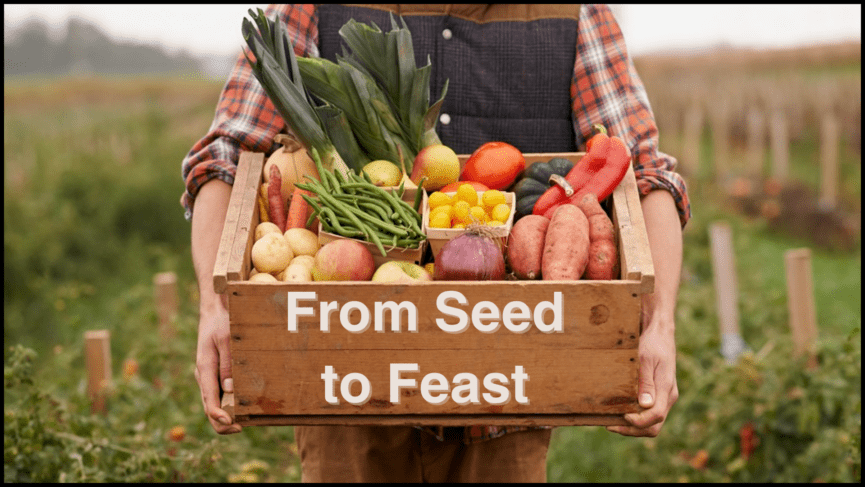Last week, we started our stewardship series “From Seed to Feast.” In our first message, we learned about the incredible power and potential of the seed. In agriculture, seeds hold the potential for bountiful harvests. In our lives, seeds symbolize the promised blessings of God for us. I explained that God’s blessings often come in the form of seeds rather than immediate blessings. These potential blessings await our active commitment to partner with God in realizing his promises in our lives. For this second message, we are focusing on the soil because a seed does not grow unless it is sown in good, healthy soil. Imagine that you have a seed, pristine and full of promise. But the fate of … Read More
From Seed to Feast: Cultivating a Heart for Giving
Today, we embark on a new sermon series on stewardship titled “From Seed to Feast: Cultivating a Heart for Giving.” Each year, as a spiritual community, we talk about stewardship, reflecting and praying over our commitment for the year ahead. We contemplate how we can serve, participate, give, witness, and pray more profoundly. Specifically, we are also preparing to submit our pledges in the form of tithes and offerings, which will help shape the church’s budget for 2024. But why “From Seed to Feast”? This theme resonates deeply because it captures the essence of our spiritual journey with God. Every blessing begins with a promise—a gesture of love—that blossoms into something wondrous given time and nurture, like a seed that, … Read More
Faith Talks: The History and Beliefs of Methodism
The History and Beliefs of Methodism Introduction Understanding the history and core tenets of Methodism provides valuable insight into one of the major Protestant Christian traditions, which has had a significant impact on the religious, social, and even political landscape globally. With an estimated 75 million followers worldwide, Methodism isn’t just a denomination; it is a diverse and vibrant faith community. What to Expect In this lesson, we will break down the key elements of Methodism into five sections: The Early Beginnings in England: A Historical Perspective A Century in Turmoil To fully understand the roots of Methodism, it is crucial to situate its emergence within the broader historical landscape of 18th-century England. This was a century rife with complex … Read More
Faith Talks: Part 3 The History of the Medieval Church
The Fall of the Roman Empire and the Rise of Christianity The period traditionally referred to as the “Middle Ages” spans roughly from the 6th to the 14th centuries. This era began in the wake of the collapse of the Roman Empire, which officially fell in 476 AD, although the Eastern Roman Empire, known as the Byzantine Empire, survived until 1453. The power vacuum left by the fall of Rome in the West led to a series of social, political, and religious transformations that were fundamental in shaping medieval European civilization. Central to these transformations was the rise of Christianity and the Church as a dominant institution (Christendom). The Role of the Church in a Fractured Society. After the fall … Read More
Faith Talks: Part 2 The History and Theology of the Early Church; 1-5 Centuries
First Century: The Dawn of Christianity The 1st Century AD was a pivotal era that transformed religious, cultural, and political landscapes, especially in Roman and Jewish societies. The period saw the rise of Christianity, beginning with the birth, crucifixion, and resurrection of Jesus Christ. The Roman Empire, under Augustus, experienced a relative peace known as Pax Romana, which enabled cultural and trade exchanges but was also fraught with political upheaval, including the Jewish Revolt in 66 AD that led to the destruction of the Second Temple. Christ’s teachings significantly influenced a once-small Jewish sect, eventually giving rise to the world’s largest religion. Key texts like the New Testament and Paul’s letters provide theological context and document early Christian struggles. Empowered … Read More





